Movie Misanthropy: “Ant-Man and the Wasp: Quantumania”
Mar 12, 2023
“Ant-Man and the Wasp: Quantumania”? More like ‘Ant-Mid: Quantum Pain in my A–”
While the previous two Ant-Man films haven’t been anything dazzling for the monster that is The Marvel Cinematic Universe, “Ant-Man and the Wasp: Quantamania” is quite possibly the worst of the trilogy and signifies yet another glaring blemish on the already lackluster track record Marvel has created the past few years. In fact, “Ant-Man and the Wasp: Quantamania” may be the perfect metaphor for the direction the MCU has been heading toward since they capped off a majority of their more significant storylines in “Avengers: Endgame.”
It’s an experience that never justifies its existence, with no redeemable qualities apart from a few laughs at its pure atrociousness. It’s meandering, uninspired, and a pathetic attempt at Marvel’s tried and true form of spectacle filmmaking. It almost feels ignorant of its own inadequacy, riddled with blind stabs at serious social commentary, miserable attempts at emotional longevity through generic family values, and vague commentary on imperialism, of all things.
“Quantamania” begins by spoon-feeding you the basics, establishing Scott Lang’s (Paul Rudd) life post-Endgame and reintroducing the audience to his daughter — Cassandra Lang, portrayed by Kathryn Newton — after her third recasting. From this point on, the film is an uphill battle, switching gears constantly and forcing the audience to connect with personalities that have almost never received any form of relevant characterization, aside from their original character introductions, of course.
Here’s Scott Lang, the wisecracking, insecure superhero looking to redefine his role as an “Avenger,” and Hope Van Dyne (Evangeline Lilly), Scott’s wife and the owner of yet another namesake tech company in the MCU. Finally, here’s Scott’s daughter Cassie, a young troublemaker and wannabe “freedom fighter” who thinks she can make a difference in the world. Hank Pym and Janet Van Dyne (Michael Douglas and Michelle Pfeiffer) fit in somewhere around there too. Realistically, there’s nothing in the film that makes the audience want to suspend their disbelief. You have to use your imagination to fill in the flagrant gaps left by the lack of notable character growth. Nobody actually gets to have a shining moment or meaningful discourse, even when they’re supposed to.
Cassie is posed to be the rising star of the film, as has been the case of most recent entries in the MCU: each film is merely a marketing vessel for future MCU “endeavors.” However, she is promptly simmered down to an unlikable and annoying performative activist. You’re first introduced to teenage Cassie after a stay in jail, a trip she earned after using PYM technology offscreen to shrink down a cop car to miniature size — the first of many forced bits of size-related humor the film will throw at you. Cassie’s whole character revolves around social and political justice; however, she doesn’t actually end up doing or saying anything meaningful for the people she claims to be fighting for. She could have used the PYM technology to actually help those who are still recovering from the blip, something we’re explicitly told is one of her core values, but instead, she runs off into peaceful protests messing with police officers using grandaddy’s technology. In hindsight, this small inconsistency could have been used to give Cassie an appropriate arc, going from a snooty aesthetic activist to a full-fledged Avenger. However, this could not be further from what actually happens, because Cassie is perfect and already has all the “street knowledge” and necessary skills to lead a full-scale revolution against Kang the Conqueror, a man who’s imperialized entire universes.
“Ant-Man and the Wasp: Quantamania” is screenwriter Jeff Loveness’ debut film and seems to have written Cassie in an attempt to appeal to a generalized TikTok audience, complete with disingenuous acts of civil justice and socially unaware calls to action. This is far from the MCU’s first offense, with nearly every recent release pandering to Disney’s corporate fantasy of minority groups. It seems their newest strategy for appealing to the younger generation is introducing underdeveloped, vapid, idyllic children into the MCU. “Dr. Strange in the Multiverse of Madness” featured America Chavez who was used to appeal to the LGBTQ+ community, but any form of subversive representation was largely lampshaded by the writers aside from a 12-second scene where she’s revealed to have two moms. In the same breath, “Black Panther: Wakanda Forever” exploited Mesoamerican history to create a tragic backstory for its unsympathetic villain: Namor. This is truly disheartening when you consider that the Ant-Man series is supposed to be some of the more lighthearted entries in the MCU. Tackling serious subject matter like classism and imperialism in a film like this feels more disrespectful than innovative. The classic white savior storyline doesn’t do any favors either.
Of course, the only people capable of freeing the captive natives, made up mostly of minority actors, of the Quantum realm are the elysian white saviors of the new world, Earth 616. However, this is not before engaging in the savage’s customs and rituals for which they are rewarded with the ability to communicate with them using the proposed universal language of English. It’s very akin to Disney’s other series, Avatar, wherein the second film the native language of the Na’vi is replaced with English almost immediately. A strange contradiction to the film’s already opaque commentary on colonization.
Another character we see make a return is a previous Ant-Man villain, Darren Cross, AKA the disproportionate humanoid freak, M.O.D.O.K. Despite M.O.D.O.K. being historically a Captain America villain, he was an ideal choice for a film that’s meant to have a comedic edge. However, he’s caught a lot of flack from audiences for his uncanny appearance. It’s a small wonder why the biggest criticism of the MCU has been its sloppy CGI. It’s an infrastructure in VFX-heavy films like these that when broken down, tends to ruin the experience for the general public. 95% of the movie is animated anyway, however, M.O.D.O.K. is among the many examples fans bring up to criticize modern MCU entries. It’s amusing that substandard CGI seems to be the most relevant criticism for Marvel despite the heap of other, far more consistent issues their films typically face. Let alone the fact CGI artists work under harsh deadlines and are chronically underpaid. You rarely ever see this level of near-universal criticism levied at the writers or producers despite them being a bigger part of the film’s failure.
In fact, M.O.D.O.K’s arc in the film is more ridiculous than how he looks. The few times that M.O.D.O.K. becomes serious is when he talks about his ‘background story,’ which is interrupted by Scott who makes a remark about his name, “Oh, I get it… it’s an acronym!”. It’s mindless humor like this that ruins any semblance of respectable characterization. In the end, M.O.D.O.K. sacrifices himself to defeat Kang, only to be made the butt of yet another joke when he calls himself an Avenger, a joke that doesn’t make sense when you realize Cross wasn’t even on Earth when Scott was made one. As is the case with one-off characters like this, it would seem M.O.D.O.K’s true applicability to this film is a character that can be used as a cheap sacrifice for plot convenience.
Like many of the other parts of the film, every point is brushed over, leaving it feeling bare and unfinished. Janet discusses her past with Kang in a shoehorned flashback sequence that’s only purpose is to make her character apropos. There’s never a balance between what the characters experience versus what actually happens. They’re merely coasting along a string of disconnected events, reacting the way they’re telegraphed to.
Cassie and Scott’s estrangement is posed in such a superficial manner. The tension between the two has to quite literally be crafted out of thin air because we have no significant foundation for their relationship prior. Scott is ridiculed by Cassie for his apparent inaction despite him being a primary factor in helping save the entire universe. He’s chastised for being an absent father, despite Cassie knowing he was trapped in an alternate dimension for five whole years. There isn’t even any mediation between the two on what makes them so disconnected. By the end of the movie, their bond seems to have been strengthened, despite there being no actual communication between the two to make their reconciliation justified.
Therein lies the central dilemma the film faces. Nothing is earned, you just get to watch a train wreck itself repeatedly. The multiverse is a difficult topic the MCU has tried its best to capitalize on, something “Ant-Man and the Wasp: Quantamania” noticeably cannot manage. In the end, the MCU’s newest venture into their signature multiverse just ends up being a worse version of “Everything Everywhere, All At Once.” Despite how many heavy topics are presented in EEAAO, its absurdist humor highlights its more complex concepts. It draws attention to the silliness of life and embraces it with open arms, never taking itself too seriously. By stark contrast, “Quantumania” uses humor to make up for its lack of an authoritative voice and compelling pathos. It’s genuinely bizarre to see a film about spandex-wearing superheroes who shrink to microscopic size simultaneously tackle serious subject matter like colonization and social justice. It’s like the script was written by an AI language model trying to replicate real human conviction.
“Ant-Man and The Wasp: Quantamania” is like an underdeveloped amalgamation of every theme previous Marvel films also tried and failed at producing. It tries to develop the theme of love and family like “Thor: Love and Thunder.” It masks itself as a deconstruction of imperialism like “Wakanda Forever.” It poses as a fun team-up movie like “Spider-Man: No Way Home,” complete with three costumed freaks running around in sync. It desperately wants to take a piece from all of these movies and make it its own, but it fails so miserably at capturing even a modicum of each. It’s especially dismal considering the films they’re riffing on, also failed at developing their own respective themes. “Superhero fatigue” is a term thrown around often to describe the lack of excitement fans have for contemporary superhero films. However, this one seems to still be conquering the box office. Marvel fans have dug their own grave, supporting the mediocre garbage that finds its way into theaters every few months. Now they just have to lie in it.
Grade: F
Ant-Man and The Wasp: Quantamania is out now in theaters — but we don’t know why you’d want to watch it.
Image courtesy of The Direct


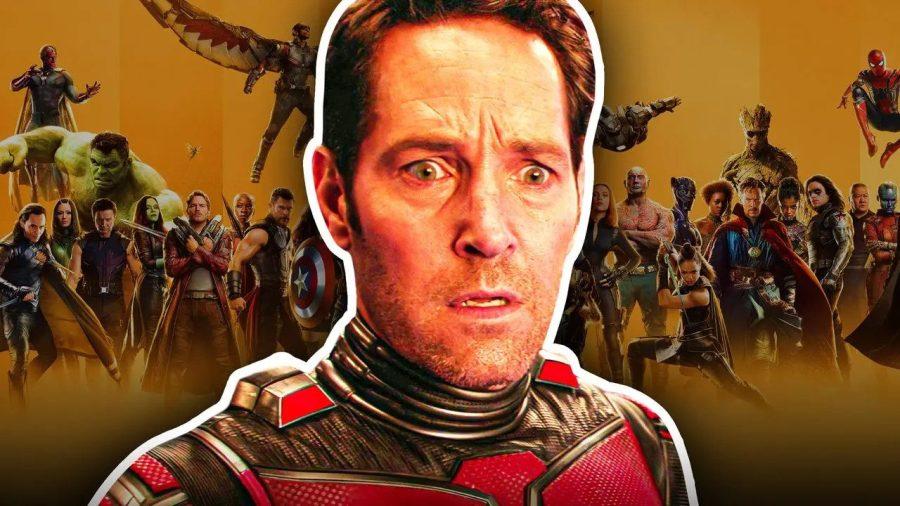








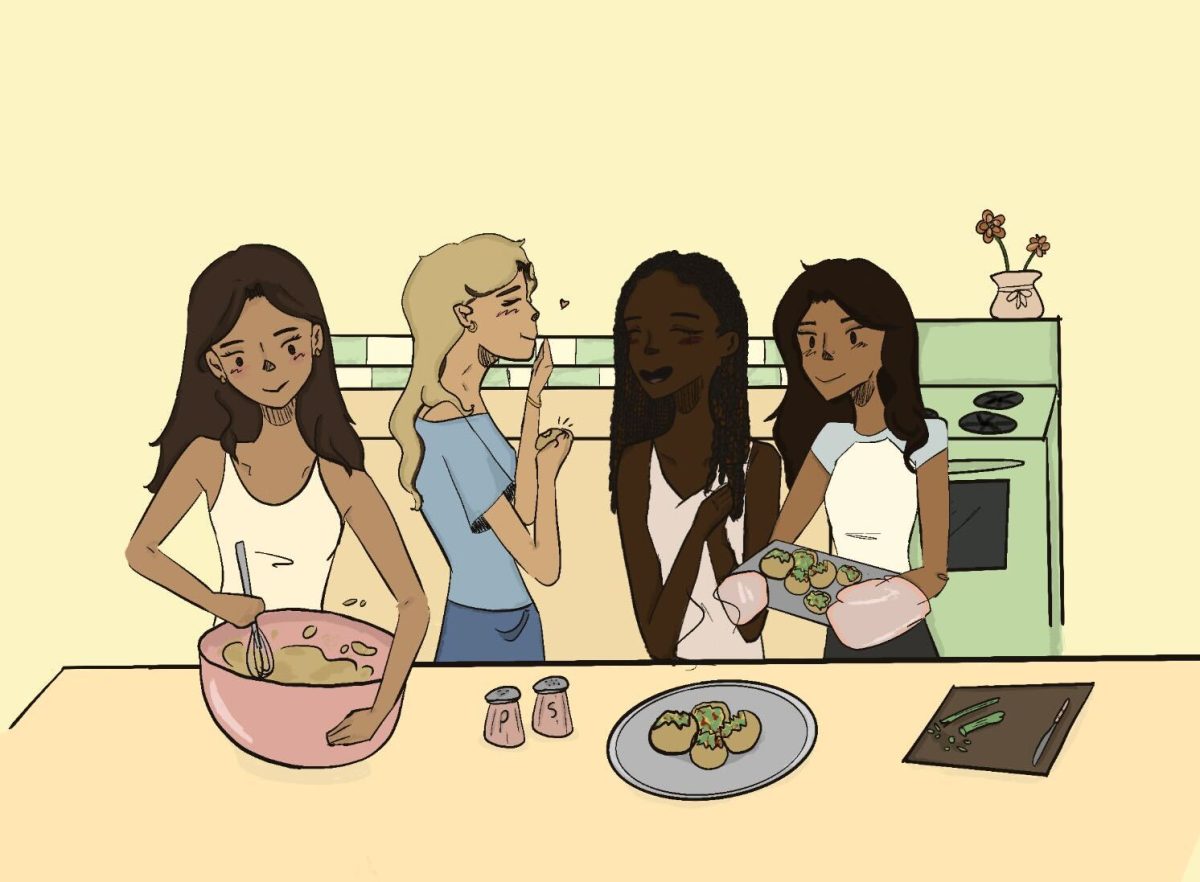
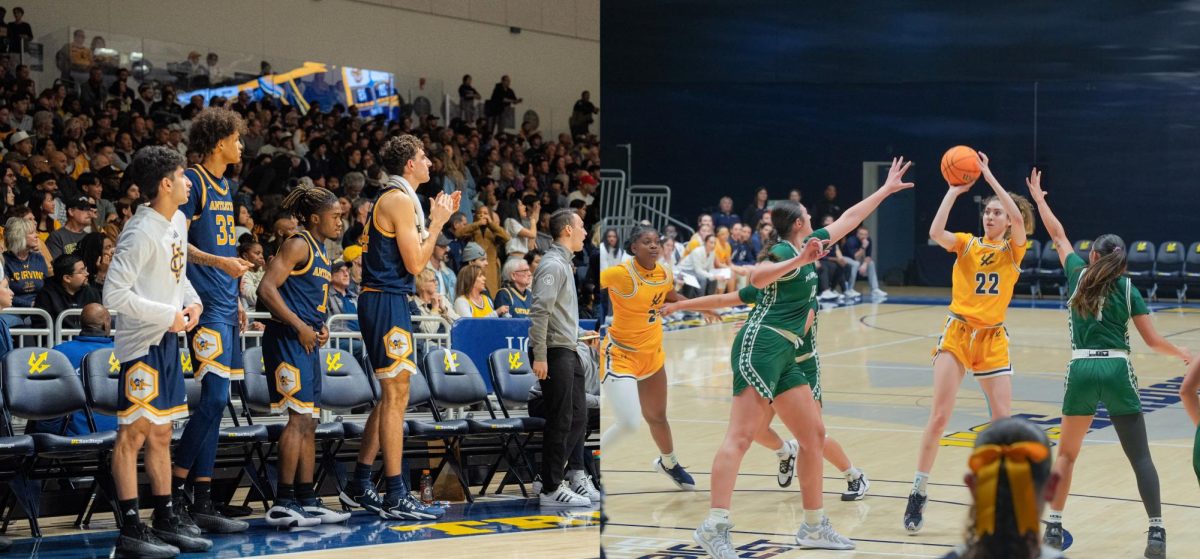
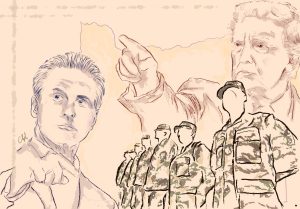



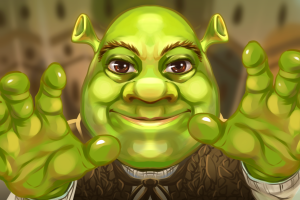
Si • Mar 13, 2023 at 7:28 am
I’ve been a marvel comics reader for 40 years. I’ve watched every film of the mcu multiple times.
The downward spiral is self evident. The appalling Cgi of She hulk and modok among others highlights the pisspoor production and Direction that is accepted now.
You have perfectly summed up the film by the way. The most honest and highly accurate review ever.